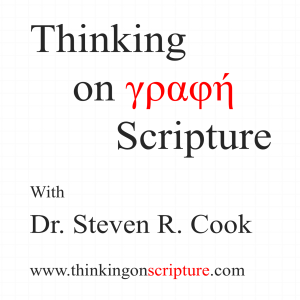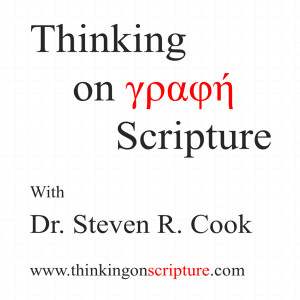"Thus has the LORD of hosts said, 'Dispense true justice and practice kindness and compassion each to his brother; and do not oppress the widow or the orphan, the stranger or the poor; and do not devise evil in your hearts against one another.'" (Zec 7:9-10)
The phrase social justice is commonly used in America today in connection with socialism; and though the term is good, socialism is not.[1] From a biblical perspective, social justice refers to the divinely bestowed rights that God legislates concerning vulnerable persons in society; specifically, the poor, widows, orphans, and sojourners. These rights were theirs by divine law in which God commanded those blessed with resources to provide for the needs, protection, and just treatment of the vulnerable. Blessed Israelites were theologically obligated by God to help the less fortunate. In God’s theocratic kingdom, the dependent could expect the powerful and wealthy to help meet their needs and defend their rights. Solomon wrote, “The righteous is concerned for the rights of the poor, the wicked does not understand such concern” (Pro 29:7).[2] The “righteous” are those who have regard for God and His laws and are “concerned for rights of the poor” (cf. Isa 10:1-2). Those who disregarded God’s laws concerning the vulnerable could expect to be judged by Him, as Moses wrote, “Cursed is he who distorts the justice due an alien, orphan, and widow” (Deu 27:19). God’s written law was the basis for “the justice due” to the vulnerable in society. According to God’s law:
If a person became poor and had to sell his land, it could be purchased back by a near relative, or by himself if able. However, if there was no one to buy the land, it was automatically returned to the owner in the Year of Jubilee, which came once every fifty years (Lev 25:23-28).
The poor could expect those whom God had blessed to be open-handed toward them and to give generously (Deu 15:7-11).
If a poor person sold himself as a slave to a fellow Israelite, he was to be set free in the seventh year, and sent away with abundant resources. But if the slave chose, he could stay with his master forever (Deu 15:12-17; cf. Lev 25:39-42). Moreover, slaves were to be treated fairly, as God declared, “You shall not rule over him with severity, but are to revere your God” (Lev 25:43).
If a poor person gave their cloak as a pledge, it was to be returned to him at sunset so that he would not get cold during the night (Deu 24:10-13).
If one of God’s people hired a poor person to perform labor, he was to be paid the same day (Deu 24:14-15).[3] This is because the poor person relied on that money to eat.
Sojourners, widows and orphans were free to eat the remnants of a crop after harvest (Deu 24:19-21).
Levites, sojourners, widows and orphans were to enjoy the tithe of produce that came every third year (Deu 14:28-29).
God called His people to be righteous, honest, truthful, protective and open-handed toward the less fortunate in society. Sadly, there were times when kings, princes, judges, wealthy, prophets and priests behaved wickedly and abused the poor.[4] For this reason, God raised up prophets such as Isaiah, Hosea, Amos, Micah, Zechariah and others who called for His people to “Learn to do good; seek justice, reprove the ruthless, defend the orphan, [and] plead for the widow” (Isa 1:17). This call for obedience was rooted in the ethics of the Mosaic Law, which God’s people were to follow. Unfortunately, God’s prophets were ignored or mistreated and the vulnerable continued to be exploited. When God’s people would not turn back to Him, He administered retributive justice, which brought about national discipline and eventual destruction (see Ex 22:21-24; Deu 10:17-18; Jer 21:12; Mal 3:5). God used both the Assyrians and Babylonians as His disciplinary agents to dispense retributive justice in Israel.
In the Church age, governmental leaders—both Christian and non-Christian—serve as conduits of His government and grace to help care for the needy in society. In this case, tax dollars are used for basic necessities such as food, shelter, clothing, and medical care. Scripture teaches us to think of government as a “minister of God” (Rom. 13:4), and to regard rulers as “servants of God” who do His will (Rom. 13:6), and to pray for them (1 Tim. 2:1-2). We realize there is a legitimate sense in which the governmental leaders of this world accomplish God’s purposes by keeping harmony and promoting justice (Rom. 13:2-4; 6-7). Christian leaders who have a healthy walk with the Lord are ultimately directed by His Word. Non-Christian leaders are influenced directly by God who controls their hearts (Pro 21:1), their consciences (Rom 2:14-15), and through the influence of godly believers in their periphery (Dan 3:28-29; 6:25-27).
As Christians, we use the phrase social justice within the context of God’s moral absolutes. We agree with the laws of man when those laws reflect God’s laws. As a result, we are to advocate for the poor, widows, orphans, and all who are vulnerable to exploitation. In many cases, we are the proponents who affect that blessing as we open our hands to the destitute. This was true of the early church, “And all those who had believed were together and had all things in common; and they began selling their property and possessions and were sharing them with all, as anyone might have need” (Acts 2:44-45). There is no model for socialism here, whereby the state acts as the mediator who takes from one and gives to another. Instead, these Christians willingly sold “their property and possession” to help others, and this was done freely in order to help “as anyone might have need.” James writes, “Pure and undefiled religion in the sight of our God and Father is this: to visit orphans and widows in their distress, and to keep oneself unstained by the world” (Jam 1:27). Individual Christians are to be open-handed when helping the poor, widows and orphans.[5] This can be done directly, or through the agency of others, including organizations that help the needy and defend their rights. We are called to be good stewards of God’s resources, and this means compassion for others should be governed by wisdom from God’s Word.
Simple ways to help the poor include: 1) spending personal time with them and treating them with respect, 2) sharing the gospel of Christ, 3) giving kind words and praying for them, 4) sharing Bible promises, 5) personally delivering freshly prepared meals or snacks, 6) giving clothes and blankets, 7) sharing information about local charities that might help them, 8) giving money, 9) volunteering at a homeless shelter, 10) offering gift cards that can be used at local restaurants such as McDonalds or Taco Bell, 11) giving to a local church that helps the poor, 12) or giving to a local charity such as Meals on Wheels or the Salvation Army.
Lastly, there will be no utopian government until Jesus returns and establishes His government in the world. At that time, “There will be no end to the increase of His government or of peace, on the throne of David and over his kingdom, to establish it and to uphold it with justice and righteousness from then on and forevermore. The zeal of the LORD of hosts will accomplish this” (Isa 9:7; cf. Jer 33:15). During that time “He will judge the poor, and decide with fairness for the afflicted of the earth” (Isa 11:4).
"When our Lord returns He will take the reins of government and rule the nations of this world as a benevolent dictator (Rev. 19:15). Then and only then will the world experience a time of righteousness, justice, social welfare, economic prosperity, and spiritual knowledge. He will show Himself to be King of kings and Lord of lords in the same arena where man’s rebellion against God took place."[6]
Summary:
When Israel was a theocratic kingdom, God legislated certain benefits to the poor, widows, orphans and sojourners in order to meet their daily needs, and these were to be given by those whom He’d blessed with abundance. God instructed His leaders to uphold and defend the rights of the vulnerable, knowing there would be wicked persons who would seek to exploit them. Sadly, much of Israel’s history was marked by a breakdown among His people, as the leaders and wealthy in the land exploited the poor they were called to defend. Now, in the Church age, God provides care for the needy in society through human governments, as well as through individual Christians and local churches. Lastly, perfect government will come in the future when Jesus Christ returns and establishes His kingdom on earth and provides righteous reign and care for all.
[1] Socialism is little more than thievery, in which governmental leaders extract wealth from one class of citizens—often the honest and hardworking—and redistributes it to others in order to create outcomes of equality. Socialism has brought nothing but social and economic ruin wherever it has been implemented.
[2] Solomon’s mother planted seeds of righteousness in the garden of her young son’s mind, hoping someday the landscape of his thinking would beautifully display the richness of God’s Word. She instructed her young son, saying “Open your mouth for the mute, for the rights of all the unfortunate. Open your mouth, judge righteously, and defend the rights of the afflicted and needy” (Pro 31:8-9). Oh, that mothers would instruct their children in the ways of the Lord; that children would grow up with godly values that instruct them to care for others and to help the less fortunate. That children would grow up to represent the highest and best within society and not the lowest and worst.
[3] The Bible promotes a strong and honest work ethic. In fact, God’s expectation of compensation for work performed is so strong, it even extended to animals, as Moses wrote, “You shall not muzzle the ox while he is threshing” (Deu 25:4). The animal that works has the right to benefit from its labor. In contrast, “if anyone is not willing to work, then he is not to eat” (2 Th 3:10).
[4] The wicked are described as those who “slay the widow and the stranger and murder the orphans” (Psa 94:6), who “deprive the needy of justice and rob the poor of My people of their rights, so that widows may be their spoil and that they may plunder the orphans” (Isa 10:2). In addition, “They are fat, they are sleek, they also excel in deeds of wickedness; they do not plead the cause, the cause of the orphan, that they may prosper; and they do not defend the rights of the poor” (Jer 5:28).
[5] Not all widows were eligible for support from the church, but only those who met the age requirements and displayed a life of humility and service to others (1 Tim 5:9-10). And, if a widow has children, they are to care for her (1 Tim 5:4). Younger widows were to seek remarriage and a godly life (1 Tim 5:11-14). And if a young woman has a dependent widow, she must care for her and not expect the church to do it (1 Tim 5:16).
[6] Charles Caldwell Ryrie, Basic Theology: A Popular Systematic Guide to Understanding Biblical Truth (Chicago, IL: Moody Press, 1999), 316.











